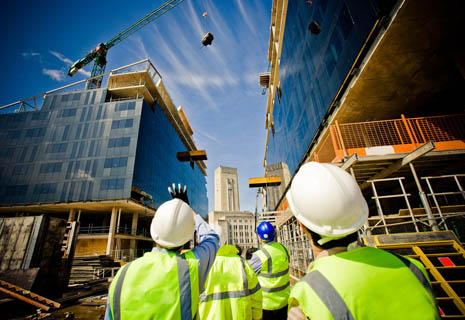Insight in the Construction Industry: Is the Indian Construction Sector Prepared for Growth?

The Indian real estate and construction sector have witnessed both Ups and downs with various reforms being implemented. Today, the construction sector in many emerging economies, including India, is witnessing sharp growth prospects as well as pressure to effectively and efficiently contribute to the national development also. The Indian construction industry is one of the major contributors to the economic and social growth of the nation. Rapidly evolving technology is changing how real-estate business is conducted, managed and how it is gradually heading to a tech-driven sector with the government actively promoting digitisation and enabling ICT based infrastructure solutions through initiatives like ‘Smart City’ and ‘IndiaChain’. Real estate operators are progressively exploring opportunities to harness this ’big data’ and develop building automation in process of construction also and resource management systems for commercial and private spaces to maximise comfort, environmental quality and sustainability. Despite all this, there is a strong need for public-private-partnerships and private ventures for improving efficiencies, labour safety in the real estate ecosystem.
India is driving towards becoming the third largest construction industry in the world by 2025 – but is the country ready to take on the challenge?
India now has one of the largest urban populations in the world. By 2050, that figure could be more than 814 million; larger than the current total population of the United States, Indonesia and Brazil combined.
That huge urban growth and needs infrastructure to support it and drive similarly significant expansion of India’s construction industry. According to KPMG, by 2025 the country’s construction sector will be the third largest in the world with an overall value of $1 trillion.
Is the Indian construction sector ready for that growth to sustain and accelerate? How will it keep up with ever-increasing demands for capacity, materials and skills? Such spectacular growth rates are rarely accompanied by appropriate regulation and risk management in any industry.
It also means the Indian construction sector is expanding very quickly into new markets – like smart cities and data centres – where local expertise is currently out of this depth and will become stretched as demand grows to deliver the right product reliably. While there is a clear future pipeline of trained professionals to tackle these challenges in the long term this lack of available talent now could hamper economic growth and prevent local innovation in other sectors.
The Indian Government has clearly recognised both the need for rapid growth and the risks that pose. A number of initiatives – from the 100 Smart Cities programme and the AMRUT infrastructure development scheme to the introduction of the RERA Act and changes to the laws for foreign direct investment – show that there is clearly the will to act to help develop the construction and real estate sector.
If the industry is to grow then the government needs to find a right level of intervention – enough to place in proper standards but not so much that regulations become impractical and strangle innovation.
At NKG Infrastructure, our experience in India has shown us the huge potential of the construction industry – a sleeping powerhouse of world-class delivery with huge potential for growth and a chance to become a world-leading industry. In order to achieve that potential, however, the sector has to quickly improve efficiencies across the all supply chain.
That means better management of programme and resource, as well as developing and adopting innovations and modern methods of construction. Although local labour conditions mean that the benefits of automation and offsite are unlikely implemented soon, digital construction tools and tighter project controls have the potential to transform the construction industry as a whole in India.
NKG Infrastructure’s initiatives, like creating proactive health, safety and wellbeing culture, the promotion of a more diverse ecosystem and a focus on skills and equal opportunity for employment will help to create a modern, forward-looking sector with broad access to new talent.
NKG Infrastructure’s way to expedite this process would be by working with different local and international partners. By doing so the NKG Infrastructure can draw on the progress already made elsewhere to leapfrog the problems that have plagued the industry in other countries. On issues like programme controls and management. International consultants are able to draw on expertise developed in their own countries to transform local delivery.
Every country is unique, adapting the techniques used elsewhere to be effective in an Indian context is challenging and Indian’s development sector certainly has a set of challenges and opportunities that aren’t present elsewhere, from the sheer scale of growth to local labour conditions and attitudes towards health and safety.
Success will only be achieved by providing an ecosystem that will provide room to develop local expertise by integrating international help and capacity that will spark a long-term sustainable change, rather than short term adoption of new methodologies.
However, the potential benefits to all construction companies across India are huge – and the risks of failing to adapt and evolve are even bigger. As the Indian market looks towards the future, it must be ready to grow in new ways.








